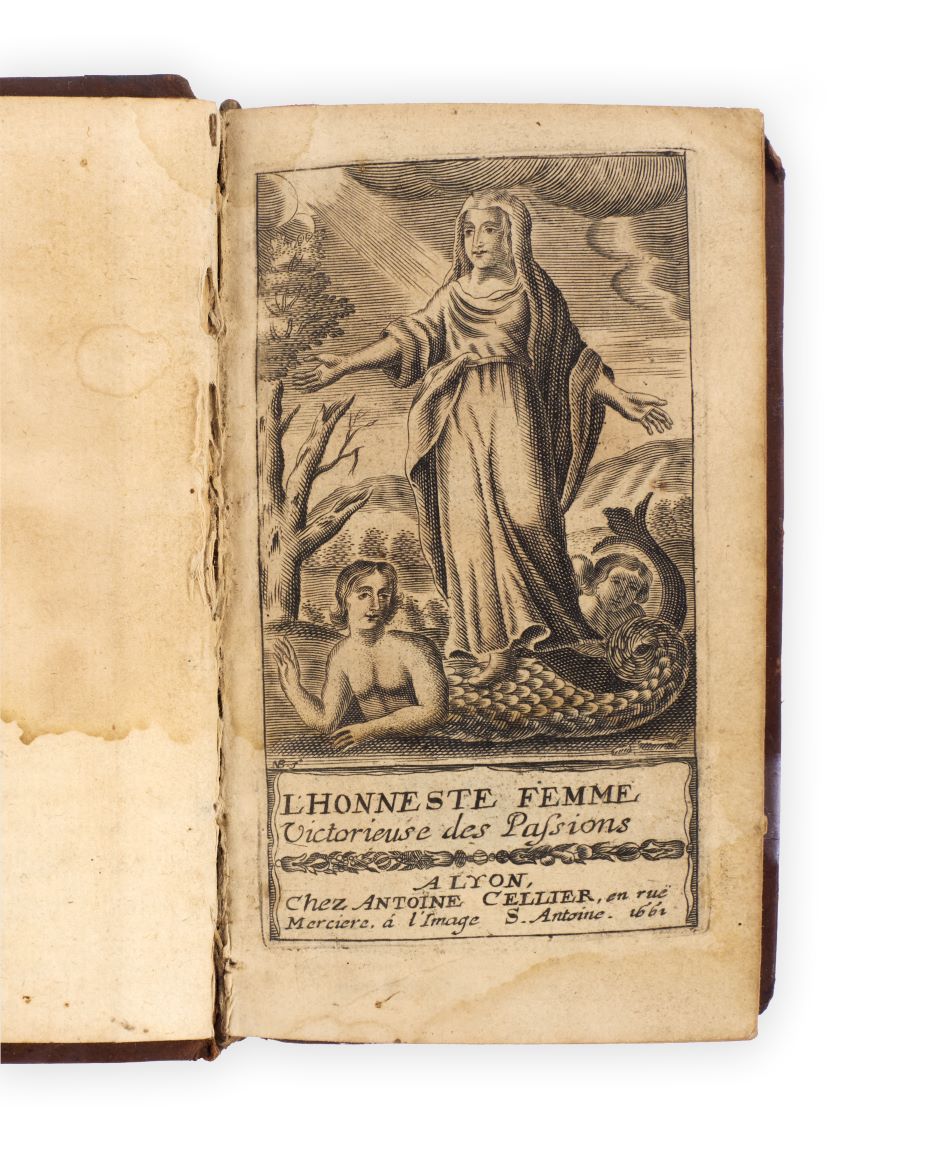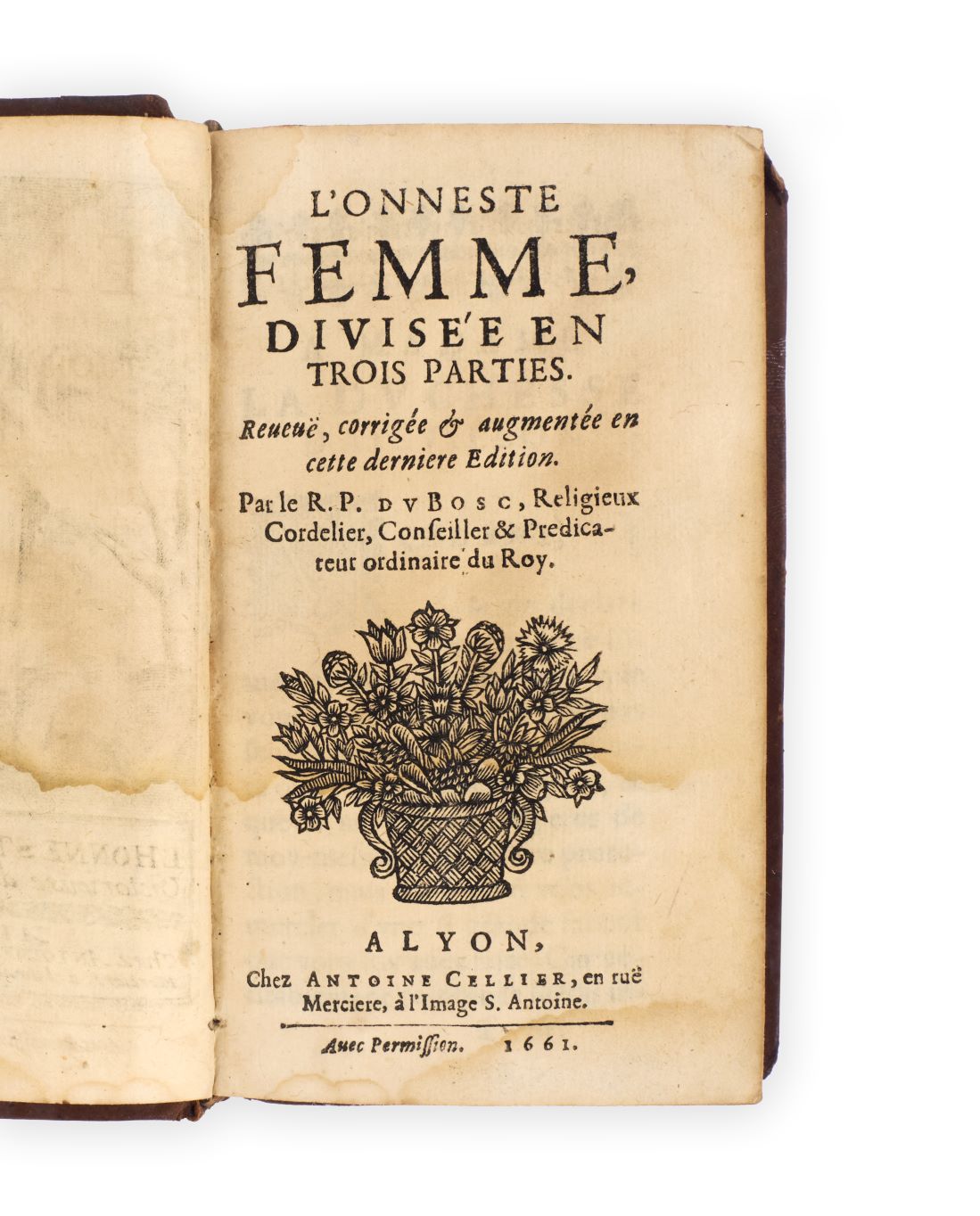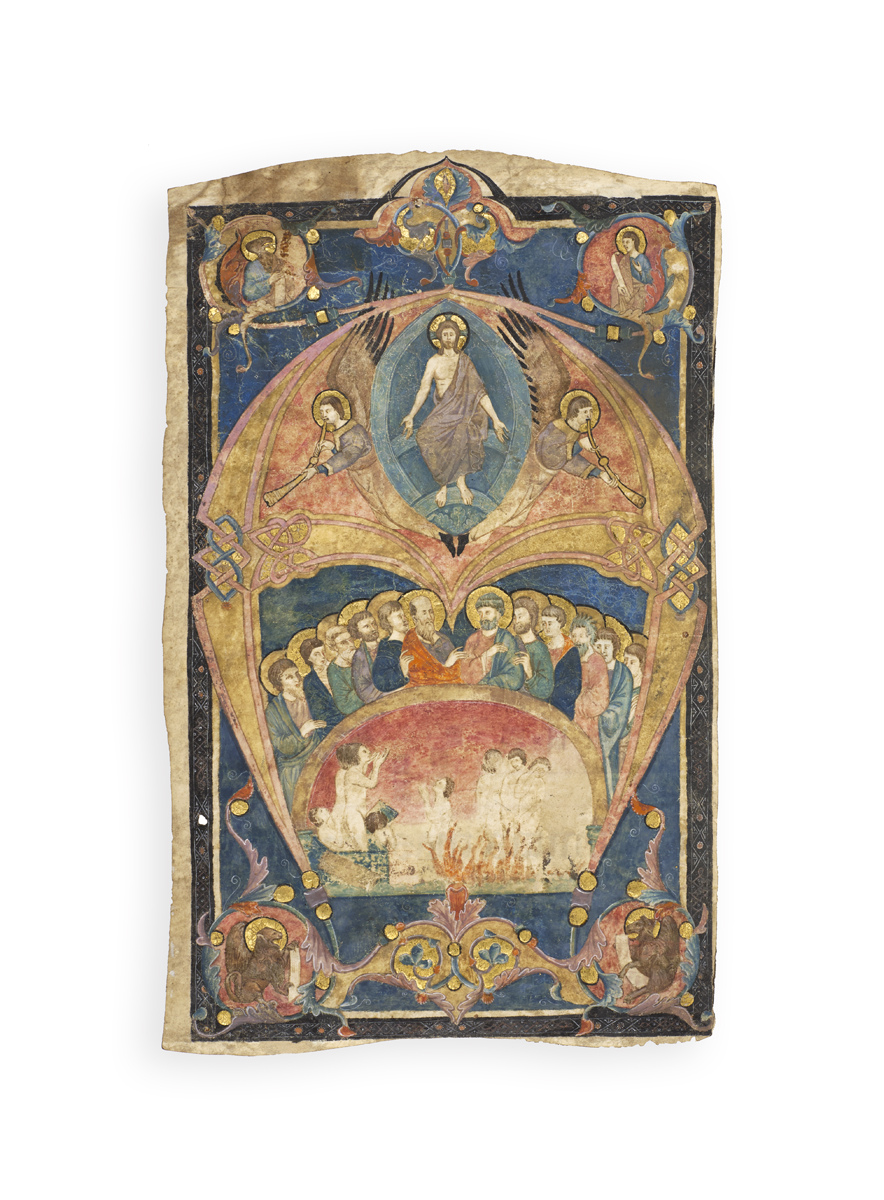

arguing ‘for women’s equality with men based on their shared reason and virtue’
DU BOSC, Jacques.
L’onneste femme, divisée en trois parties. Reveue, corrigée et augmentée en cette derniere edition …
Lyon, Antoine Cellier, 1661.
12mo, pp. [24], 575, [1 (blank)]; with additional engraved title ‘L’honneste femme victorieuse des passions’, woodcut basket of flowers to letterpress title, initials, head- and tail-pieces; some damp staining at beginning, occasional light foxing and toning, light creasing to last few leaves; good in contemporary calf, spine in compartments lettered and decorated in gilt, edges sprinkled red; small loss and wormhole at head of spine, some wear to corners and slight rubbing to covers.

Added to your basket:
L’onneste femme, divisée en trois parties. Reveue, corrigée et augmentée en cette derniere edition …
Very rare Lyon edition of Du Bosc’s famous ‘feminist’ work.
Du Bosc (1600–1669) was a Franciscan cordelier best known in his time for his anti-Jansenist polemics and for his three works on women, of which L’Honneste femme was the most influential. First published in 1632 (with fifteen essays), it went through thirteen editions in France alone, as well as translations into Dutch and English; a second part appeared in 1634 and a third in 1636. As the title-page here notes, the work was ‘reviewed, corrected and enlarged’, the first part growing to eighteen essays, as here, opening with ‘On reading’.
‘To Du Bosc’s way of thinking, the honnête or “respectable” woman’s role in society is not only that of mother and wife; she is primarily a member of a social elite who embodies the art of pleasing through her politeness, urbanity, and conversation’ (Wolfgang and Nell). L’Honneste femme is in effect a justificatory conduct book for this new role for women, though Du Bosc sees his role more as an advisor to a prince than a priest to a sinner.
‘Jacques Du Bosc treats women as reasonable and moral beings able to think critically, if educated, and to make moral choices on their own … Du Bosc claims, as did François de Sales before him, that pious women did not need to retreat to the convent but could participate fully in secular polite society without endangering their virtue … His honnête femme is a purely social being free from domestic cares. Thus, Du Bosc focuses his treatise exclusively on the development of women’s “intelligence” and “moral judgment.” He proposes a way for elite women to perfect the self for social interaction through the practices of reading, reflection, and conversation. In appealing to women’s reason, Du Bosc does not “prescribe laws” for women, as most writers of the period did, but reasons with them, examining the pros and cons of all aspects of social life. Following Montaigne and Marie de Gournay and anticipating Descartes, Du Bosc argues for women’s equality with men based on their shared reason and virtue’ (Introduction, Wolfgang and Nell).
In this edition the whole work is dedicated to the Duchesse d’Aiguillon, Richelieu’s favorite niece, formerly known as Madame de Combalet.
No copies of this edition traced in the UK or US. See L’Honnête Femme: The Respectable Woman in Society and the New Collection of Letters and Responses by Contemporary Women, by Jacques Du Bosc, ed. and trans. Sharon Diane Nell and Aurora Wolfgang (2014).

